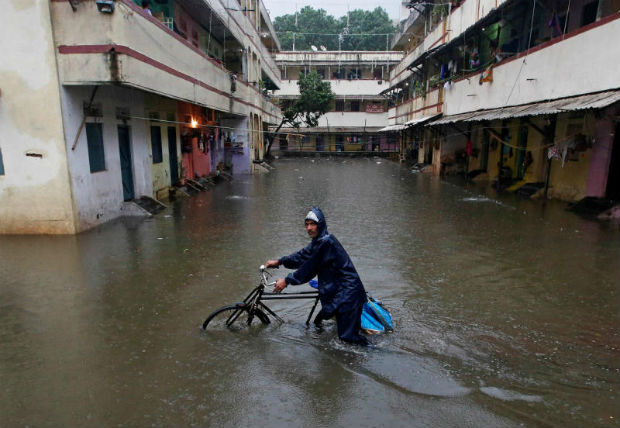
KUALA LUMPUR: Natural disasters could become more destructive in Asia-Pacific, where a person is already five times more likely to be affected than in other regions, the United Nations warned on Tuesday, urging countries to invest in resilience plans.
Home to 60% of the world's population, Asia-Pacific is the planet's most disaster-prone region.
Last year, floods, storms and extreme temperatures killed 4,987 people - far fewer than the annual average since 1970 - and affected some 34.5 million, according to the Asia-Pacific Disaster Report 2017.
Poor and lower middle-income countries, which are typically least able to prepare for and respond to weather hazards, suffered about 15 times more deaths from disasters than richer Asian nations, said the report released by the United Nations Economic and Social Commission for Asia and the Pacific (ESCAP).
Disasters can have "deeply disruptive effects on livelihoods" and further disadvantage already vulnerable people, many in rural areas, pushing more into poverty, it said.
In addition to the human costs, the ESCAP research indicated that between 2015 and 2030, 40% of global economic losses from disasters would occur in Asia-Pacific.
"It also shows that future natural disasters may have greater destructive potential," ESCAP said in a statement.
The commission said disaster risks exacerbated by climate change were likely to increase in the region.
They include more life-threatening heatwaves, worsening floods and droughts, more frequent and powerful tropical cyclones, and heavier monsoon rains in East Asia and India.
ESCAP head Shamshad Akhtar urged countries to fill gaps in their plans for dealing with disasters.
"The absence of an institutionalised insurance culture and adequate post-disaster financing threaten our extraordinary economic and developmental achievements," she said.
According to the report, the countries facing the greatest economic losses from disasters are the region's largest economies like Japan and China.
But its least-developed and small island nations could be hit hardest, losing between 2.5 and 4% of their gross domestic product annually.
ESCAP called for actions to mitigate disaster risk linked to climate change, including setting up a regional early warning system and investing in disaster risk education.
It said building disaster resilience into agricultural development plans was important, as studies showed most poor people in Asia-Pacific are farmers in rural areas.
"It is... critical for improving livelihoods and reducing poverty," the report said.
(Video YouTube/Cities of the World)